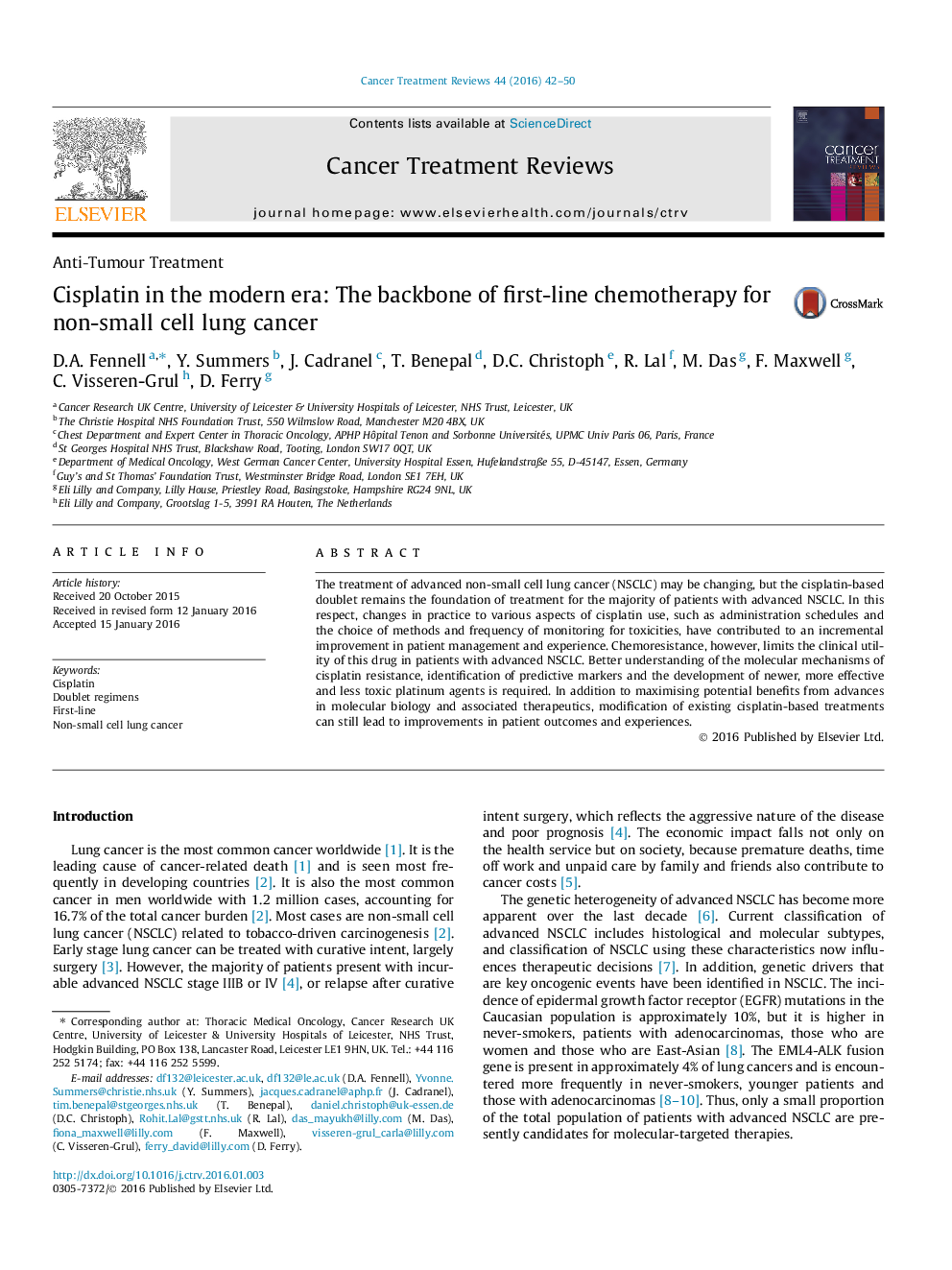| Article ID | Journal | Published Year | Pages | File Type |
|---|---|---|---|---|
| 3979779 | Cancer Treatment Reviews | 2016 | 9 Pages |
•Cisplatin is a mainstay component of doublet regimens for advanced NSCLC.•Changes in practice have improved cisplatin tolerability.•These include refined administration schedules and use of prophylactic agents.
The treatment of advanced non-small cell lung cancer (NSCLC) may be changing, but the cisplatin-based doublet remains the foundation of treatment for the majority of patients with advanced NSCLC. In this respect, changes in practice to various aspects of cisplatin use, such as administration schedules and the choice of methods and frequency of monitoring for toxicities, have contributed to an incremental improvement in patient management and experience. Chemoresistance, however, limits the clinical utility of this drug in patients with advanced NSCLC. Better understanding of the molecular mechanisms of cisplatin resistance, identification of predictive markers and the development of newer, more effective and less toxic platinum agents is required. In addition to maximising potential benefits from advances in molecular biology and associated therapeutics, modification of existing cisplatin-based treatments can still lead to improvements in patient outcomes and experiences.
